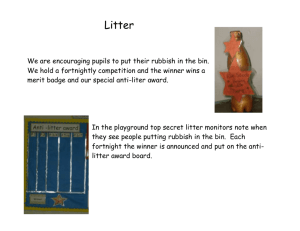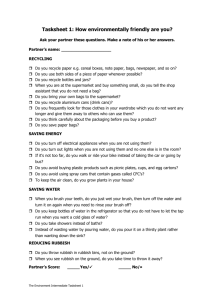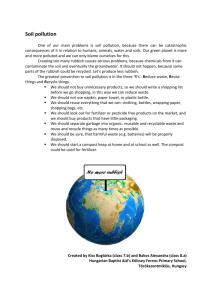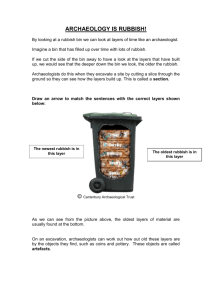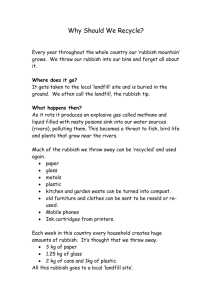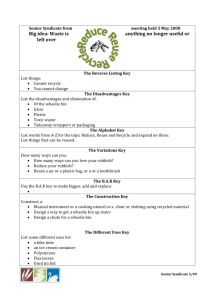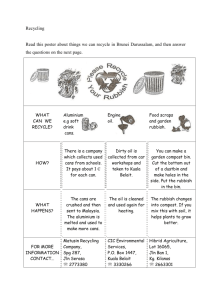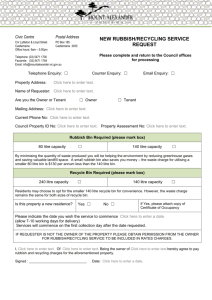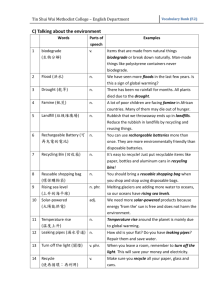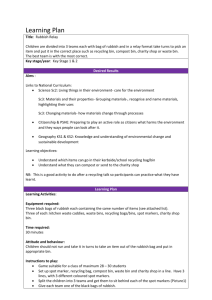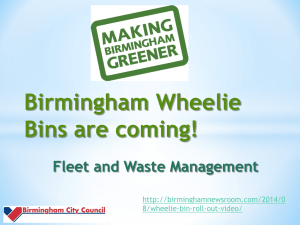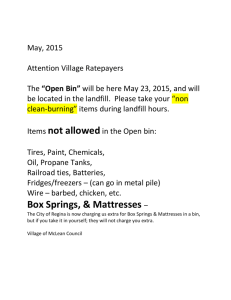Thinker`s Keys: Rethink, redesign, reduce, reuse, recycle
advertisement
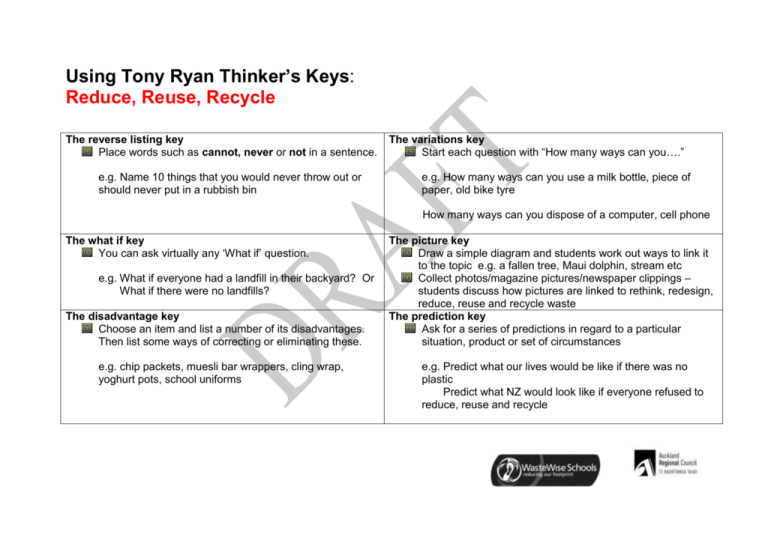
Using Tony Ryan Thinker’s Keys: Reduce, Reuse, Recycle The reverse listing key Place words such as cannot, never or not in a sentence. e.g. Name 10 things that you would never throw out or should never put in a rubbish bin The variations key Start each question with “How many ways can you….” e.g. How many ways can you use a milk bottle, piece of paper, old bike tyre How many ways can you dispose of a computer, cell phone The what if key You can ask virtually any ‘What if’ question. e.g. What if everyone had a landfill in their backyard? Or What if there were no landfills? The disadvantage key Choose an item and list a number of its disadvantages. Then list some ways of correcting or eliminating these. e.g. chip packets, muesli bar wrappers, cling wrap, yoghurt pots, school uniforms The picture key Draw a simple diagram and students work out ways to link it to the topic e.g. a fallen tree, Maui dolphin, stream etc Collect photos/magazine pictures/newspaper clippings – students discuss how pictures are linked to rethink, redesign, reduce, reuse and recycle waste The prediction key Ask for a series of predictions in regard to a particular situation, product or set of circumstances e.g. Predict what our lives would be like if there was no plastic Predict what NZ would look like if everyone refused to reduce, reuse and recycle The combination key List the characteristics of two different objects and then combine them into a single object. e.g. classroom rubbish bin and a play station rugby ball and a banana The bar key Make an item bigger, add something to it and replace something on it. The different uses key List some different uses for items from you topic. (emphasis on reducing, and reusing) e.g. Find 10 uses for an old curtain, plastic bags, old paint, bathtub, toy/game etc Find 10 ways of reducing your paper usage The ridiculous key Make a ridiculous statement that would be virtually impossible to implement and then attempt to argue its advantages. e.g. coke bottle, skateboard, boogie board, lemon The alphabet key Compile a list of words from A-Z which have relevance to your topic. Explain why. e.g. waste e.g. You must not put your rubbish in the bin You are not allowed to purchase anything that is brand new The construction key Design/set up a wide variety of construction problem-solving tasks and use lots of readily available material to make them. e.g. compost bin from materials around school, device to stop rubbish going down stormwater drains The commonality key The forced relationships key Decide on two objects which would normally have nothing Develop a solution to a problem using 3 totally different in common, and try to find common points between them. objects. Objects cannot be used for what they were intended. e.g. compost bin and nappy, forest and rubbish truck e.g. disposing of dog faeces in an environmentally friendly way with a icecream lid, chop sticks and big old plant pot The question key Start with an answer and list five questions that give that answer. e.g. Rethink, redesign, reduce, reuse, recycle The brainstorming key State a problem which needs to be solved and brainstorm a list of solutions. e.g. New Zealanders use approx 1.1 billion plastic bags per year Every year New Zealanders put 3,000,000 tonnes of rubbish into landfill. A large percentage of it is organic material The brick wall key Make a statement which could not generally be questioned or disputed and then try to break down the wall by outlining other ways of dealing with the situation. The alternative key List ways in which to complete a task without the normal tools. e.g. How many different alternatives are there to putting rubbish into a bin destined to go to landfill. Provide specific examples. The interpretation key Describe an unusual situation and then think of some different explanations for the existence of that situation. e.g. No fish in the sea No packaged food on supermarket shelves Rubbish bags/bins are no longer collected by local council contractors The inventions key Inventions which are constructed in an unusual manner. Outline on paper and then possible construction. e.g. Invent a new way to grow plants quicker e.g. Everyone produces waste! Environmentally friendly packaging New Zealand is clean and green! Design a bin that rubbish can’t blow out Examples of how to use Thinker’s Keys: homework, extension activities, rotational activities, contract, small group, whole class etc Have fun!
